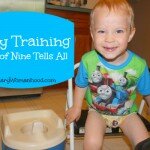5 Stress-Free Ways to Improve Your Homeschooling
By Contributing Writer, Kelly Crawford
Let’s face it: homeschooling can be stressful. And while stress levels are dependent on many factors, holding your child’s education in your own hands can stress the most relaxed homeschooler.
Whether you are a strict desk-and-American flag kind of homeschooler, or a “playing-in-the-dirt-qualifies-as-an-experiment” kind, there are some regular habits that will benefit your homeschooled children.
1. Conversation
It is too often a missing ingredient in the family, especially as our social gadgets have us increasingly distracted from our real lives. Conversation is full of learning opportunities, especially to a devouring little mind who wants to know “why.” With a little intention, parents could effectively raise wise, educated children almost entirely through conversation.
2. The Dinner Table
Eating together as a family facilitates the important conversations, but it’s more than that. According to research by the Home Renaissance Foundation,
“…family dinners generate ‘human capital’. Kids who sit down regularly with parents and siblings do better at exams than those who don’t. Rates of substance abuse, obesity and eating disorders are also lower….It is at the dining table that we impart some of the most important lessons of life: how to tell a story, share our recollections of the day and listen politely. It is where kids should learn something about manners. Not formal etiquette, but how to behave in company. It is easy to dismiss these things as irrelevant.”
And Patrick Henry Reardon says, “Virtue begins with a spoon.” In almost a mysterious way, the dinner table shapes the character of the people around it. And that is an integral part of education.
3. Flash Cards
Take some of the work out of rote memorization with flash cards. Keep addition facts, multiplication facts or even cards with geography facts in the car to make the best use of travel time. Also, when an older child can help a younger child, everyone benefits. It’s one less thing for Mom and the older kids are reinforcing their learning.
4. Crafts & Playing
Let them play, let them create! Even if it doesn’t look like creativity to you, encourage your children to use the part of their brains that thinks critically in order to produce and create. We don’t give “play time” enough credit for the development of important brain function. Consider these thoughts about play:
“Play is the highest form of research.” – Albert Einstein
“Children learn as they play. Most importantly, in play children learn how to learn.” – O. Fred Donaldson
“Play is often talked about as if it were a relief from serious learning. But for children play is serious learning. Play is really the work of childhood.” - Fred Rogers
5. Educational Films
Documentaries, how-to videos or historical biographies can be excellent educational tools, especially for your auditory and visual learners. Check your library or Netflix.
And don’t forget—your children are learning every day, all year long. Capitalize on their natural curiosity and take confidence knowing that God has so equipped them for learning. Focus on the fear of the Lord that is the beginning of knowledge, and Think Outside the Classroom!
Tags: home schooling




















Great reminders, Kelly! The point on conversation really struck me this evening as I was trying to hurry a conversation so I could read aloud. The reading aloud is good, but not at the cost of those special before-bed conversations.
Claudia,
Isn’t it funny how we subconsciously place more emphasis on certain things, forgetting that the journey along the way is just as important?
Kelly recently posted…Rules or Relationship: Don’t Fall Into the Parenting Ditches